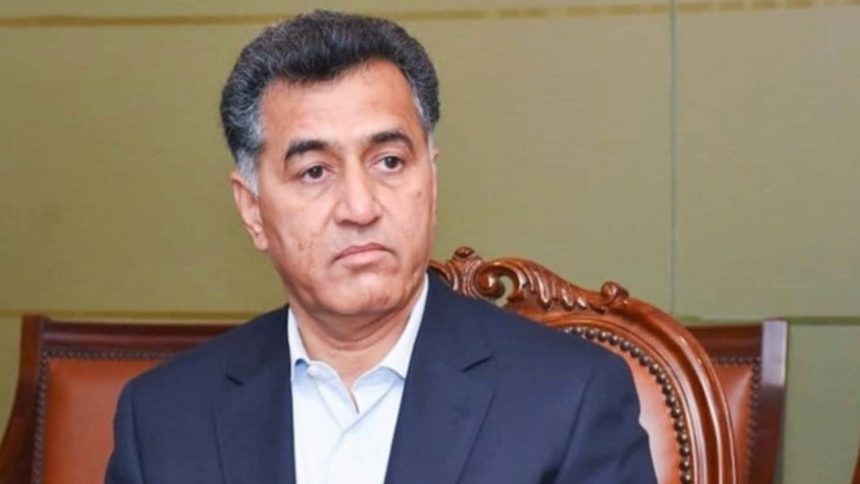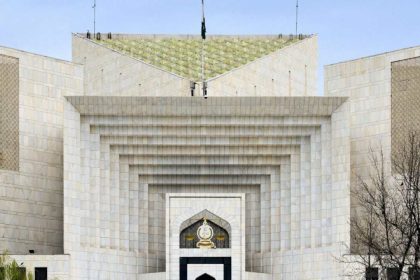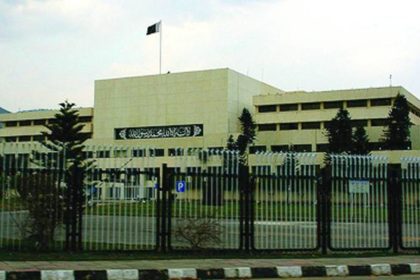The fate of former spy chief Faiz Hameed, a retired lieutenant general, remains uncertain, but one thing is clear that the military code of justice would hold him accountable for misuse and abuse of power in the due course of the Field General Court Martial (FGCM).
Following charges levelled in the press note of the military’s media wing against the retired lieutenant general, coupled with unconfirmed reports emanating from military circles, he is likely to face the court martial under Section 40 and Section 26B [political activity] of the Pakistan Army Act of 1952, and in other case Section 31 [mutiny and insubordination] under which the accused can be awarded life imprisonment or death penalty if found guilty.
However, the charge sheet against Faiz Hameed would reveal the exact nature of charges he would face in the Field General Court Martial. People familiar with the military law say that Section 40 of the Pakistan Army Act deals with financial corruption, embezzlement and other crimes of this nature, and that the Top City case falls under Section 40.
A military officer accused of misusing his official position for financial embezzlement or corruption, and by force [and by doing so] inflicting financial damage even on a civilian, falls under the Section 40. Under this section, the accused can be arrested even after 15 years, or whenever the incident is reported, and offences that fall under this section are not time-barred.
Apart from the Top City case inquiry, the Inter-Services Public Relations (ISPR) press note stated in the second paragraph that multiple instances of violation of the Pakistan Army Act had also been established against the former spy chief. Translating the second paragraph of the statement, military law experts believe that it most possibly points towards the former spymaster’s political activities, while this violation falls under Section 26B of the Pakistan Army Act of 1952.
Brigadier Imtiaz Ahmed and Major Muhammad Amir faced army’s accountability system for playing role to dismiss Benazir Bhutto govt
The Section 26B says that any retired officer from a normal posting cannot take part in any political activity within a period of two years from the date of his retirement. While any retired officer who served on a sensitive posting cannot take part in any political activity within a period of five years from the date of his retirement. The second part of the Section 26B can be applied to Faiz Hameed if it would be part of his charge sheet.
Now comes the possible lethal allegation of creating May 9 mutiny-like situation, as gossips and unconfirmed reports allege that the former spymaster might be behind the May 9 mayhem with the tacit knowledge of the jailed chairman of the Pakistan Tehreek-e-Insaf (PTI). If such an allegation is levelled and made part of the charge sheet, the punishment is death or imprisonment.
This falls under the ambit of Section 31 of the Pakistan Army Act of 1952, applicable to both serving and retired officers who get involved in a conspiracy against the federal government or make bids to spread dissatisfaction against the military’s high command. It is not a time-barred section and the accused can be arrested even after 30 years.
Background interviews with security officials revealed that the Top City case was brought into the knowledge of the then army chief, General Qamar Javed Bajwa, in 2017 immediately after it happened. A report by the Military Intelligence (MI) was sent to the then MI Director General Major General Asim Munir, who is the current army chief. He brought the matter to General Qamar Bajwa’s knowledge.
Faiz Hameed was serving as the director general of the Counter-Intelligence (CI Wing) of the Inter-Services Intelligence as major general and overseeing matters related to the Top City. The Court of Inquiry against the former spy chief regarding the Top City case was formed by the military following the Supreme Court’s directives.
According to background interviews, fresh information gathering or fact-finding for the Court of Inquiry was tasked to the Military Intelligence, which was assisted by the Special Investigation Branch (SIB) of the army. However, the Inter-Services Intelligence has also submitted its report in the course of fresh investigations into the Top City case for the Court of Inquiry.
Earlier, the Pakistan Army’s internal accountability system proceeded against Brigadier Imtiaz Ahmed and Major Muhammad Amir, who were spies in the Counter-Intelligence Wing of the Inter-Services Intelligence, for playing rogue to dismiss the democratic government of the late Benazir Bhutto by managing a ‘vote of no-confidence’ under a secret operation. However, proceeding against a former spymaster for the court martial was the first-ever in the history of the country.












